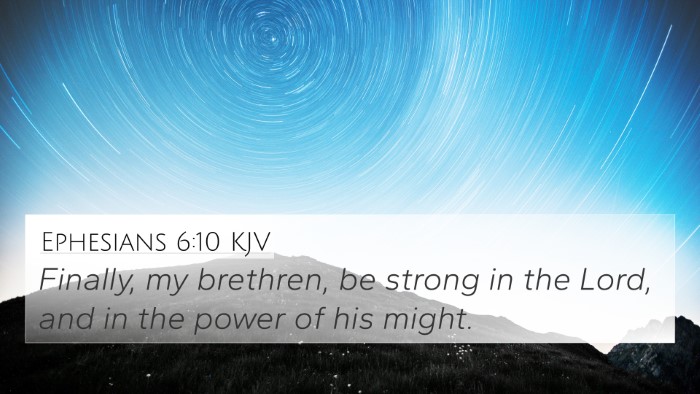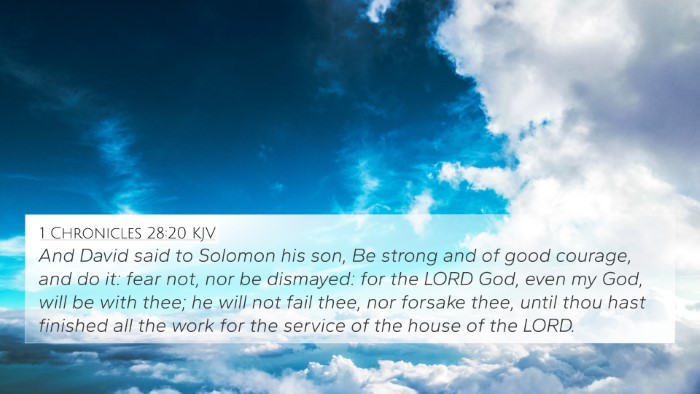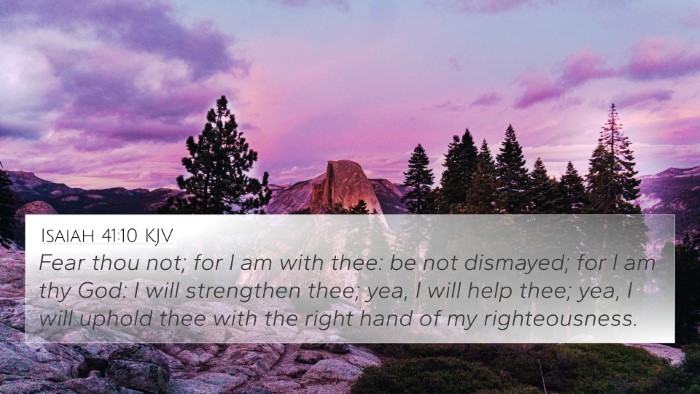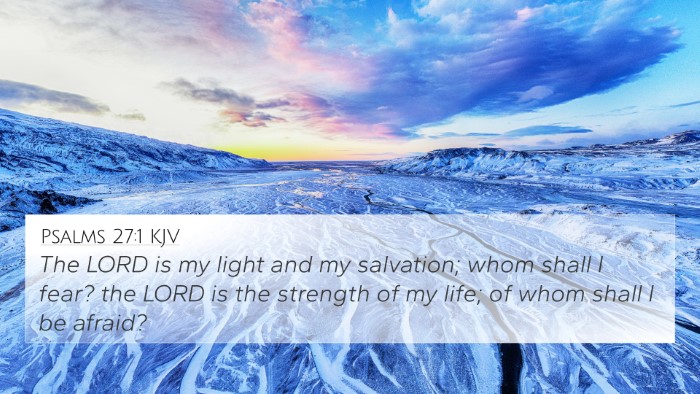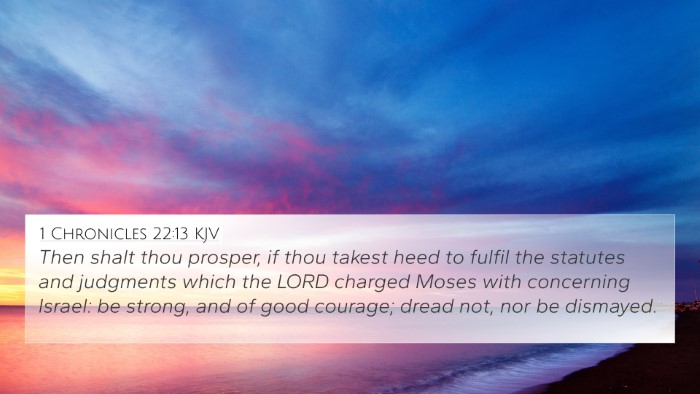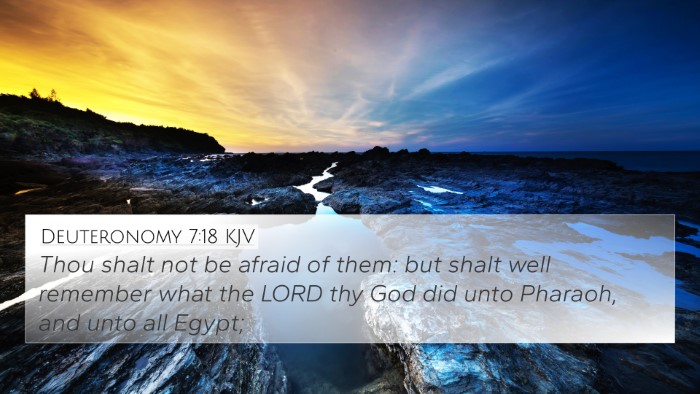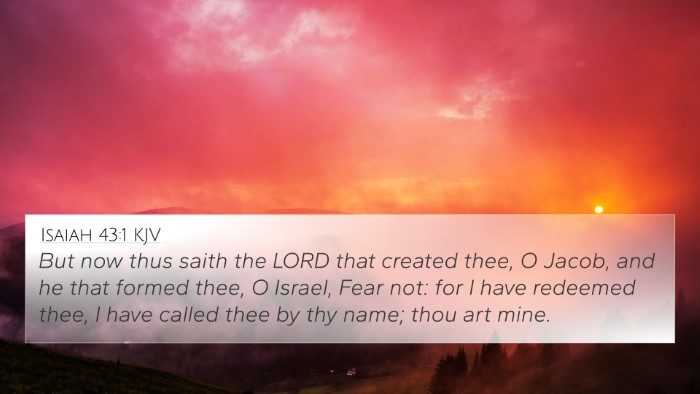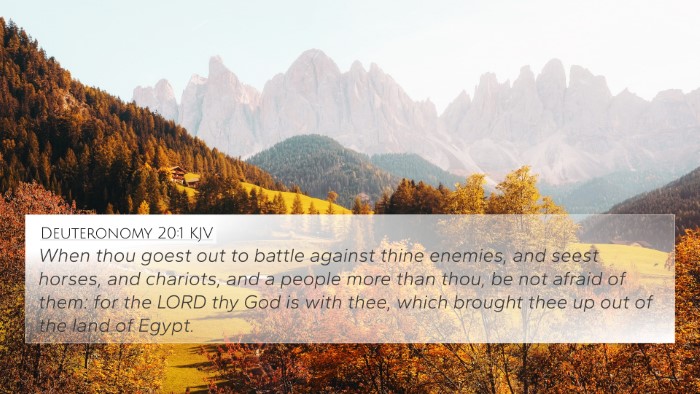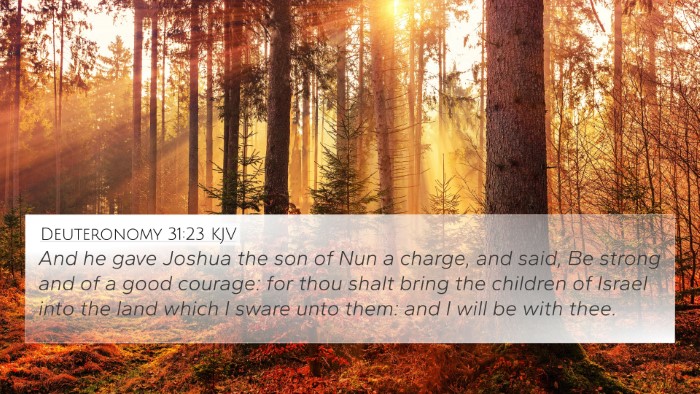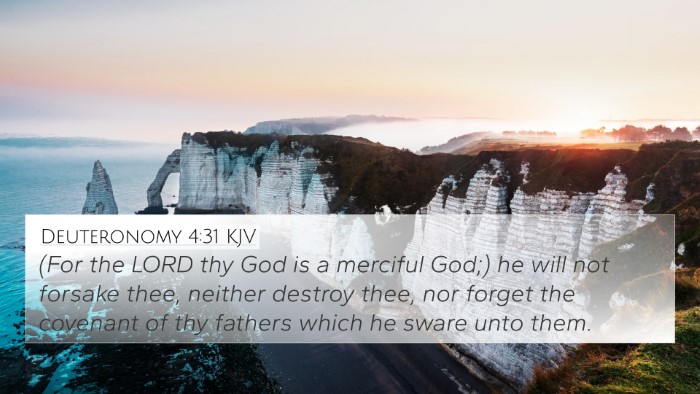Understanding Deuteronomy 31:6
Verse: Deuteronomy 31:6
Text: "Be strong and of a good courage, fear not, nor be afraid of them: for the Lord thy God, he it is that doth go with thee; he will not fail thee, nor forsake thee."
Summary and Interpretation
This verse emphasizes God's steadfast presence and encouragement. It assures the Israelites of His unwavering support as they prepare to enter the Promised Land under the leadership of Joshua.
Key Themes:
- Divine Presence: God promises to be with His people, offering comfort and protection.
- Courage and Strength: The repeated call to be strong and courageous highlights the challenges that await but reassures them of God's power.
- Faithfulness of God: This verse reinforces God's commitment to not abandon His people, providing a foundation for their faith.
Commentaries Analysis
Combining insights from Matthew Henry, Albert Barnes, and Adam Clarke enhances our understanding of this verse:
Matthew Henry's Commentary
Matthew Henry notes the context of leadership transition from Moses to Joshua. He emphasizes that the command to be strong is rooted in the assurance of God’s presence, which is a recurrent theme in Scripture.
Albert Barnes' Commentary
Albert Barnes elaborates that the encouragement to "fear not" is essential as the Israelites face their enemies. He specifies that such a command reflects God's intent to instill trust among His people, showing that fear is unnecessary with God’s presence.
Adam Clarke's Commentary
Adam Clarke elucidates that the phrase "he will not fail thee, nor forsake thee" is profoundly reassuring, highlighting that God's commitment transcends the human experience of abandonment and failure.
Bible Cross-References
This verse interlinks with several others throughout the Bible that echo its themes of strength, courage, and God's enduring presence:
- Hebrews 13:5-6: Assurance of God's presence - "For he hath said, I will never leave thee, nor forsake thee."
- Joshua 1:9: Command to be strong and courageous.
- Psalms 27:1: "The Lord is my light and my salvation; whom shall I fear?"
- Isaiah 41:10: "Fear thou not; for I am with thee: be not dismayed; for I am thy God."
- 2 Timothy 1:7: "For God hath not given us the spirit of fear; but of power, and of love, and of a sound mind."
- Philippians 4:13: "I can do all things through Christ which strengtheneth me."
- Romans 8:31: "If God be for us, who can be against us?"
Thematic Connections
Deuteronomy 31:6 serves as a critical link between the Old Testament and New Testament views of God's promises:
We see a consistent theme of God’s faithfulness in both covenants, showcasing how these verses resonate and reflect upon each other.
How to Use Bible Cross-References
For those studying this verse, consider the following methods:
- Utilize a Bible concordance to identify themes of strength and divine presence across scriptures.
- Engage in cross-reference Bible study to deepen your understanding of the interconnectedness within biblical texts.
- Practice comparative analysis of the mentioned verses, noting how each one complements the themes of Deuteronomy 31:6.
Engaging with Scripture
For those desiring deeper connections, explore how the teachings of Paul echo the sentiments expressed in Deuteronomy 31:6, especially regarding facing trials with courage, reinforced by God's strength. Additionally, consider the links between prophetic writings and New Testament teachings on faith and endurance.
Conclusion
The profound assurance given in Deuteronomy 31:6 continues to resonate, encouraging believers today to stand firm in their faith, emboldened by God’s commitment to always be with them. Engage actively with the related verses for a comprehensive understanding of the themes of strength, courage, and divine assurance throughout Scripture.




